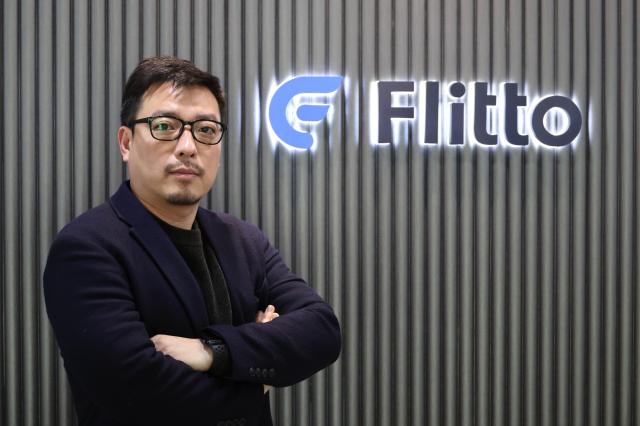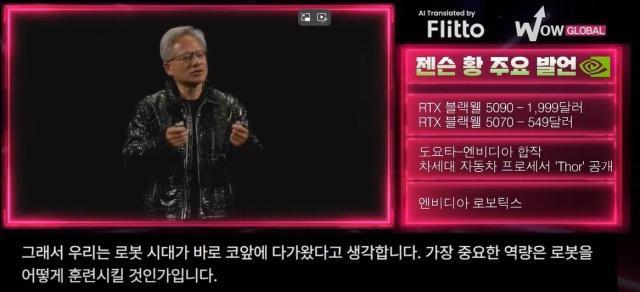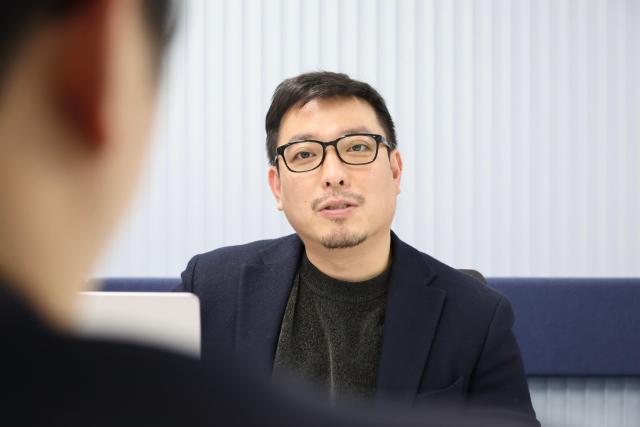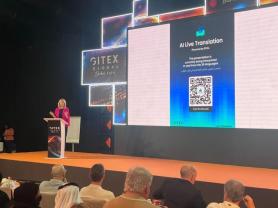
Having already built a strong competitive edge, with over 70 percent of its revenue coming from the U.S. market, the firm aims to further solidify its presence by enhancing its offerings for global customers. Flitto also seeks to attract more investment from the market to enhance its corporate value.
"Last year's strong performance was made possible by the dedication of Flitto's employees worldwide in achieving the corporate goal of becoming profitable," said CEO Simon Lee. "We will strive to strengthen our fundamentals and enhance shareholder value while positioning Flitto as a global leader in AI-powered translation services," he vowed.
According to its preliminary earnings report released on Thursday, Flitto recorded its highest-ever revenue of 20.3 billion won (US$13.9 million) in 2024, with a net profit of 800 million won. The firm achieved its goal of posting an operating profit for the first time since its establishment. The success was driven by increased demand for AI translation services, strategic business partnerships, and continuous efforts to improve language processing capabilities.
Flitto recently showcased its AI-assisted simultaneous translation service at a four-day event in Las Vegas last month, offering real-time translations of speeches by industry leaders such as Nvidia CEO Jensen Huang, X CEO Linda Yaccarino, and Delta Air Lines CEO Ed Bastian.
The event demonstrated Flitto's ability to provide seamless multilingual communication, garnering impressive attention from potential clients and investors. Huang's keynote session had 3,000 concurrent viewers and 78,000 total views, using Flitto's translation program. The solution supports 38 different languages including Arabic and Hindi, and is accessible across various devices including mobile phones, tablet PCs, and laptops.

"Minority languages still lack sufficient data, but their scarcity makes them highly valuable," said Lee in an exclusive interview with AJP earlier this week. "As AI technology advances, accumulating translation data for underrepresented languages could unlock vast business opportunities."
Nevertheless, Lee pointed out that human interpreters are still essential, despite remarkable progress in AI translation. "Just as skilled journalists who make effective use of AI can deliver even better news coverage, human interpreters will remain indispensable," he said.
"Interpreting is not merely about word-for-word translation, as it involves adapting language to specific social and cultural backgrounds, which AI may not fully grasp. To convey texts and meanings accurately and effectively, an interpreter must have a profound understanding of both languages and relevant sociocultural contexts. For instance, a gaming interpreter must be someone who truly understands the field," he explained.

To address the challenge of acquiring linguistic data, Flitto is seeking various methods including partnerships with media outlets, collaboration with educational institutions, and direct purchases. "The cost of acquiring data varies by region, often reflecting local living standards," Lee added. "With a strategic investment in language datasets, Flitto could gain a competitive edge in the AI translation industry."
As part of its long-term strategy, Flitto is also investing in research and development to enhance its AI algorithms, with the goal of improving accuracy and efficiency in translations across a broader range of languages.
The firm believes that integrating AI with human expertise will allow it to provide high-quality translation services tailored to specific industries including professional sectors such as healthcare, legal, and finance. By expanding its footprint in key markets and strengthening its technology, Flitto plans to position itself as a global leader in AI-powered language solutions.
Copyright ⓒ Aju Press All rights reserved.




